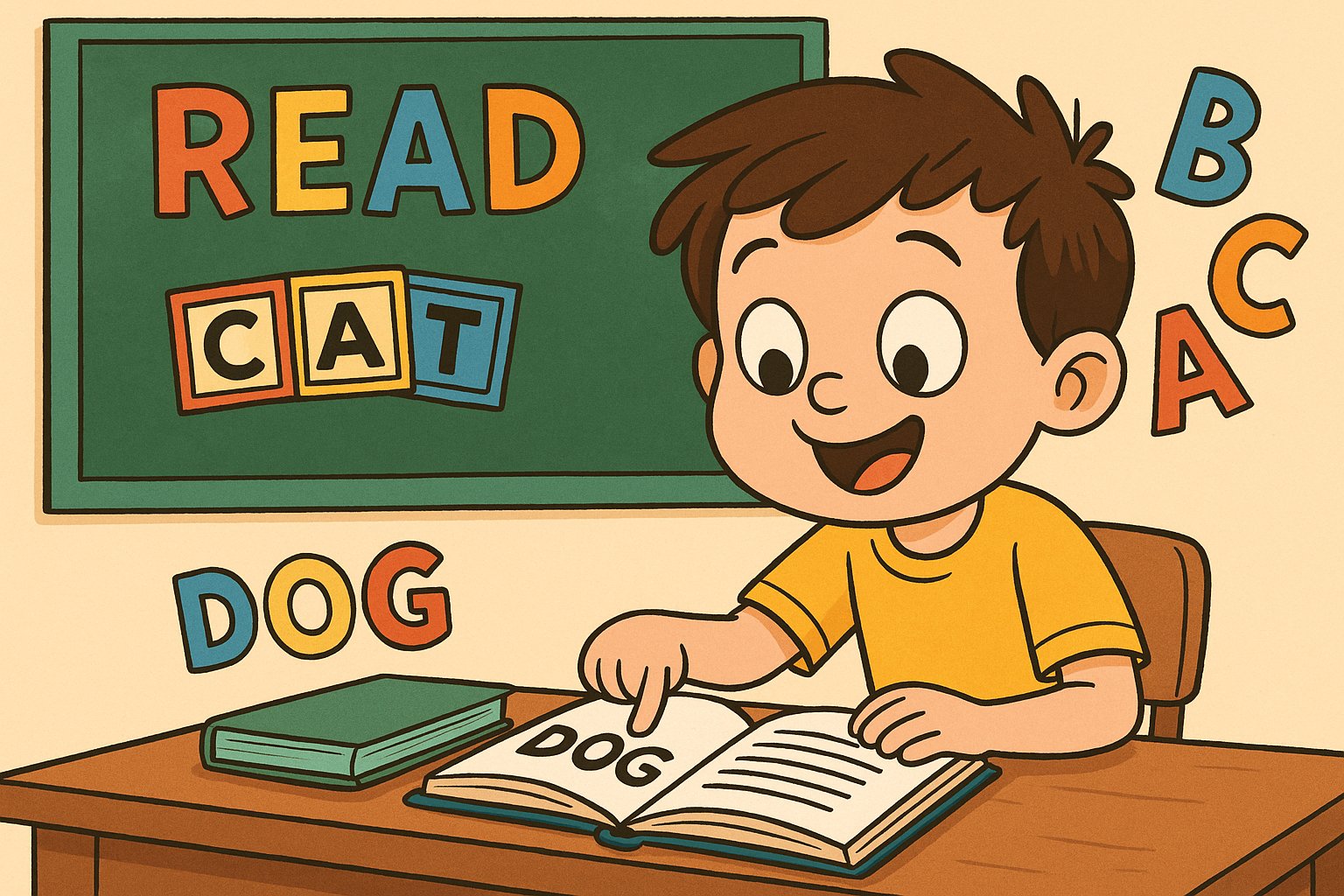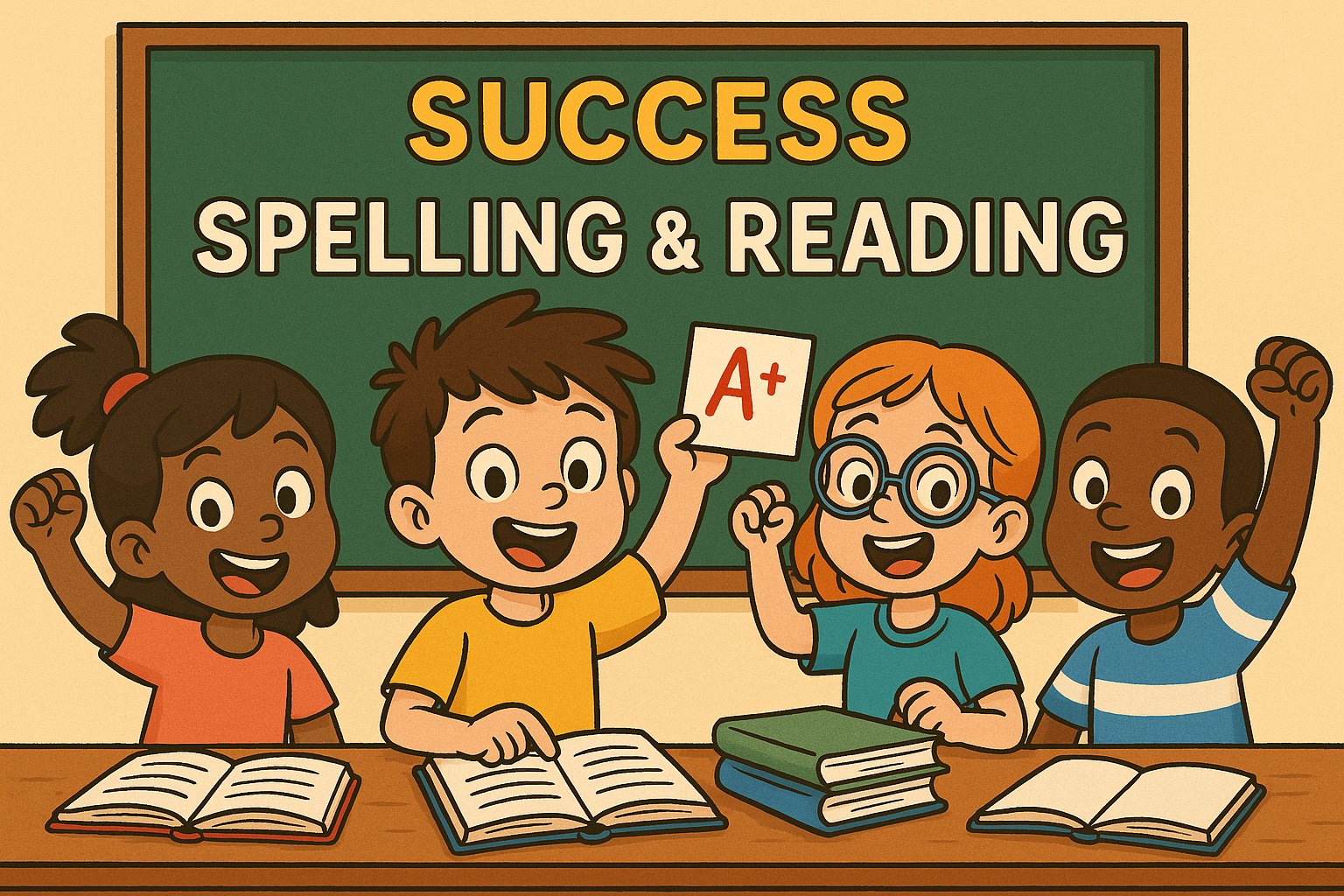
Introduction
Reading and spelling are not isolated skills; they are interconnected in profound ways that influence a learner's overall literacy journey. By understanding the synergy between decoding and encoding, parents and educators can foster more effective teaching strategies that lead to greater literacy success. In this article, we'll delve into the intricate relationship between reading and spelling proficiency, backed by research and practical methods for boosting both abilities.
1. How Reading and Spelling Skills Interact
Reading primarily involves decoding — translating written symbols into sounds — while spelling requires encoding — translating sounds into written symbols. The processes mirror each other, sharing cognitive pathways such as phonological awareness and orthographic mapping. Developing one skill often strengthens the other, creating a positive feedback loop of literacy growth.
2. The Role of Phonemic Awareness
Phonemic awareness, or the ability to hear, identify, and manipulate sounds in words, underpins both reading and spelling. Children who master phonemic skills early are better equipped to decode unfamiliar words and spell words accurately.
Enhancing Phonemic Skills:
- Practice blending and segmenting sounds
- Engage in rhyming and alliteration activities
- Use phonemic games from ABZ Learning to boost engagement
3. Orthographic Mapping and Memory
Orthographic mapping refers to the brain's ability to permanently store words for quick retrieval. Strong orthographic skills allow children to recognize and spell words automatically, reducing cognitive load during reading and writing tasks.
4. The Importance of Morphological Awareness
Understanding prefixes, suffixes, and root words enhances both spelling and reading comprehension. Teaching students about morphemes allows them to decode and spell complex words with greater ease.
5. Common Challenges When Reading and Spelling Are Disconnected
Children who excel in reading but struggle with spelling — or vice versa — often exhibit gaps in foundational literacy skills. Addressing these gaps early ensures balanced development across both domains.
6. Practical Strategies for Strengthening the Reading-Spelling Connection
Effective interventions must integrate both reading and spelling activities. Strategies include:
- Explicit phonics instruction
- Multi-sensory approaches like writing words in sand or tracing letters
- Regular dictation exercises paired with reading practice
- Leveraging fun, interactive literacy games available at ABZ Learning
7. Key Differences Between Reading and Spelling Skills
| Aspect | Reading | Spelling |
|---|---|---|
| Primary Skill | Decoding | Encoding |
| Goal | Recognizing words quickly | Reproducing words accurately |
| Supportive Skills | Phonemic awareness, fluency | Phonemic awareness, orthography |
FAQs
Q1: Can strong reading skills ensure good spelling skills?
A1: Not always. Although related, spelling often requires more attention to detail. Balanced instruction enhances both skills.
Q2: How early should spelling instruction begin?
A2: Spelling instruction should begin alongside reading instruction in Kindergarten or even earlier through phonemic games and letter activities.
Q3: What are signs of spelling difficulties despite good reading skills?
A3: Frequent phonetic spelling errors, trouble with silent letters, and difficulty applying spelling patterns are common signs.
Q4: What types of games improve spelling and reading simultaneously?
A4: Interactive word-building games, phonics races, and dictation-based activities like those found on ABZ Learning are highly effective.
Q5: Why is orthographic mapping important?
A5: Orthographic mapping enables rapid word recognition and automatic spelling recall, supporting fluent reading and writing.
Q6: How can parents help children improve spelling at home?
A6: Engage children in spelling games, use word cards, practice writing in different mediums, and encourage reading aloud daily.
Conclusion
Mastery of both reading and spelling is crucial for comprehensive literacy success. Their symbiotic relationship means strengthening one invariably boosts the other. Educators and parents must create rich literacy environments filled with engaging activities that address both decoding and encoding. Ready to elevate your child's literacy journey? Explore research-based, fun literacy games at ABZ Learning and empower young learners with the tools they need to thrive.
